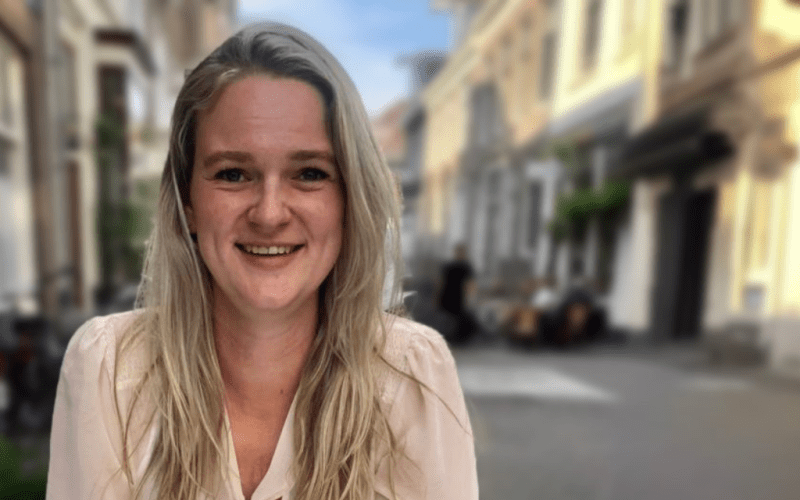After living with a support heart for four years, Gertie is celebrating the 10 years since she received a donor heart. “I became eligible at a very young age because my situation was life-threatening,” she said.
When Gertie was just 17 years old, she began her studies, an exciting and busy period, but she soon noticed that something was wrong. “I was very tired, quickly out of breath and short of breath,” Gertie recalls. At first, Gertie thought it was stress or overtiredness from the busy time, but when she also began to faint, her mother urged her to see a doctor. Her mother knew the symptoms of heart failure; a hunch that soon became a reality. “Within three weeks of visiting the family doctor, and being quickly referred to a cardiologist, I was diagnosed with heart failure.”
Gertie was remarkably young for this diagnosis, which led to a quick and intensive investigation process with a clinical geneticist. “A mutated gene was found that indicated an inherited predisposition to heart failure, although no one else in my family had the same condition,” she explains. “So in that we are still puzzled.”
Gertie became ill very quickly in a very short time, too ill to wait for a heart transplant. For this reason she received a supporting heart to bridge the gap. “Despite the restrictions this support heart brought, I could continue to do almost everything: study, work, go out and spend time with friends and family. However, I was not allowed to go on vacation, because I could be called up for and transplant at any moment, and then I had to be in UMC Utrecht as soon as possible.” This support heart ultimately allowed Gertie to wait 4 years for a heart transplant.
This year, Gertie is celebrating her tenth year with a donor heart. At the time, the transplant was the only option. “The new heart not only meant a continuation of life for me, but it also gave me many wise lessons and experiences,” Gertie shares. “I got to know myself better and it definitely made me who I am today.”
The donor heart was literally the option between life and death. “I am very grateful for the second chance I was given,” she says. Today, Gertie feels well and is almost as active as someone without her medical history, although she must remain on medication for life. “I take this for granted, but I do have a lower resistance because of this, which makes me slightly more susceptible to illnesses and have to watch out more during flu season and with certain types of food.”
Gertie looks forward to a future full of health and happiness, in which she hopes to make many more wonderful memories. She hopes by sharing her story to inspire others and create more awareness of heart failure. “Heart failure can happen to anyone, regardless of age,” she stresses, adding, “Therefore, take good care of yourself and be kind to yourself.”
UMC Utrecht, Erasmus MC and UMC Groningen perform heart transplants. In 2023, 74 heart transplants were performed. This is a 45 percent increase from 2022 (51 transplants). This large increase is courtesy of the new heart-in-a-box method, which ensures that hearts can also be used for donation after death from circulatory arrest (DCD).
